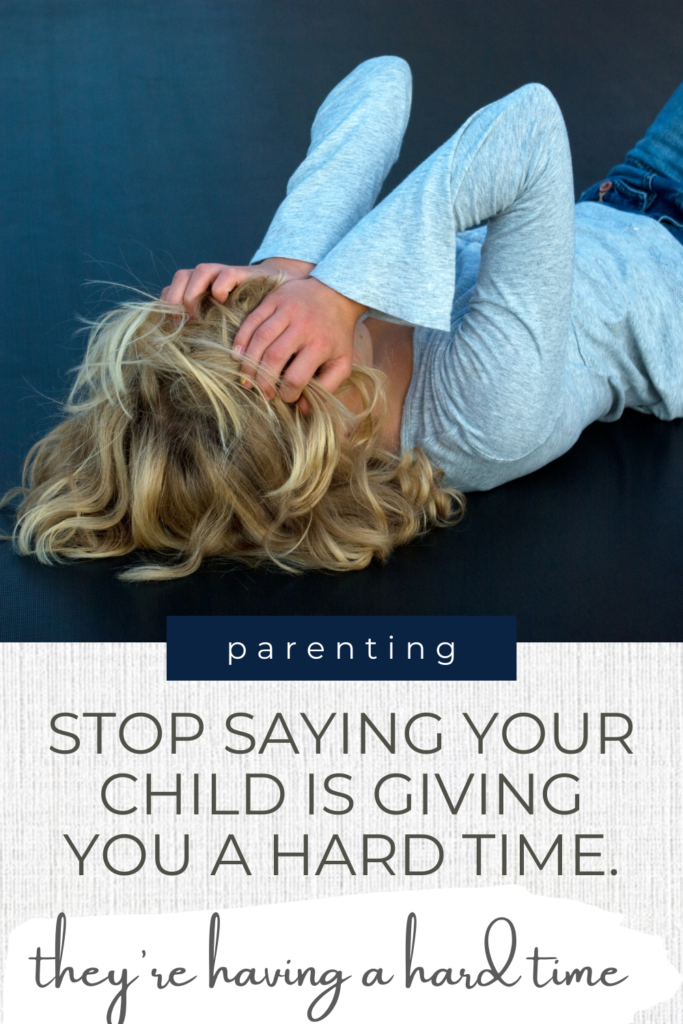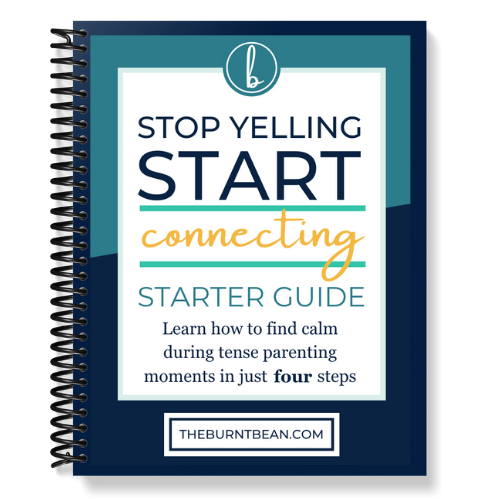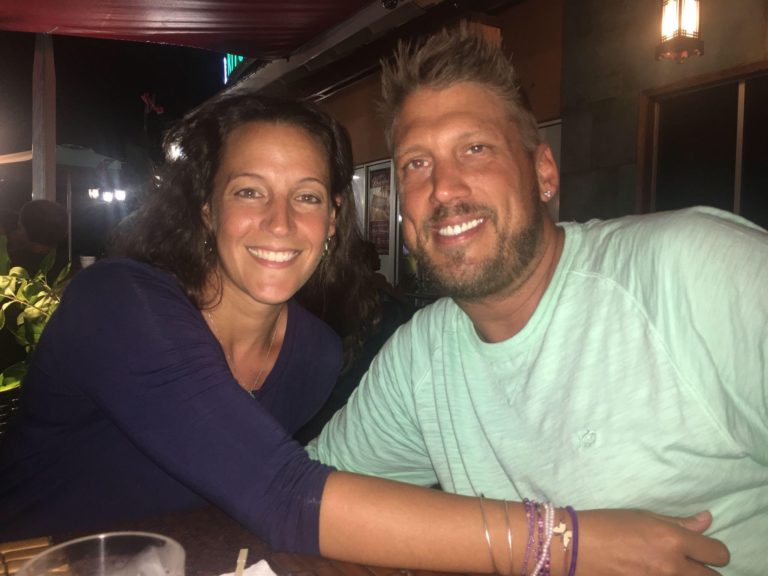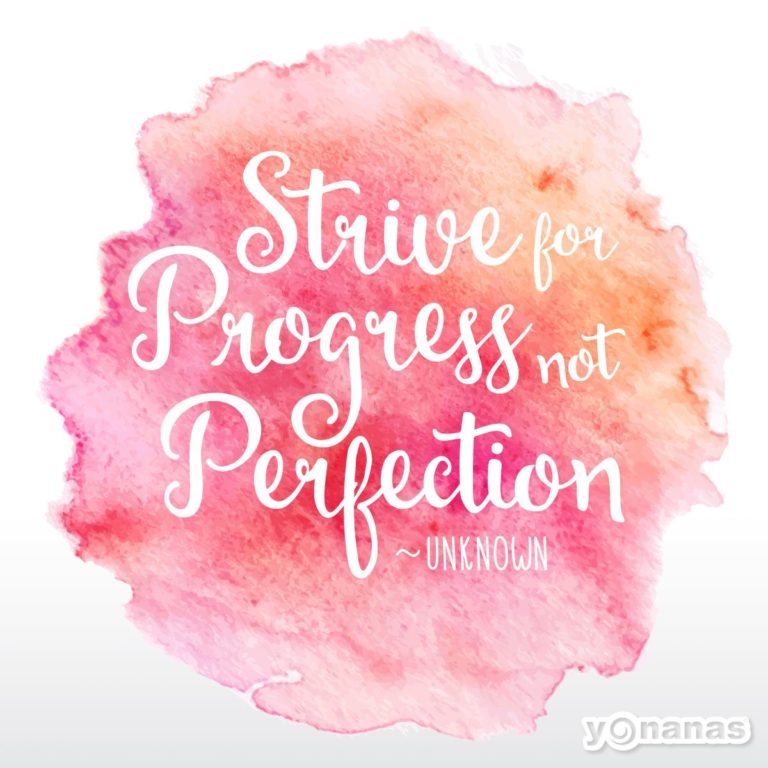No. Your child is not giving you a hard time.
Whether it is during the toddler years when tantrums are an almost hourly occurrence, or during the teen years when simply walking past them in the hallway is enough to garner an eye-roll, or somewhere in between, our children are not out to give us a hard time. They are having a hard time.
There’s a difference.
I hear it all the time – shit, I’ve even said it multiple times: “Ugh! She is giving me such a hard time today!”
But here’s the thing – young children don’t have the capacity to understand how their behavior affects someone else. Meaning, they are developmentally incapable of giving you a hard time.
They are not being manipulative. They are not trying to dictate how your day is going to go.
And while teenagers do have the capacity to be manipulative and while it can seem like they purposely say or do anything just to irritate you, they crave boundaries and connection – they will just never admit it.
so then what’s the deal?
When you notice that your children are under your skin and you feel irritated by their very presence, it is easy to assume that they are giving you a hard time.
But really, they are having a hard time. They are struggling with something and they need you, but they don’t know how to ask.
Most kids don’t have the language to say, “I am going through this really hard thing, and I could use a little extra love today.” Yes, even teenagers.
Teens likely won’t be able to make the connection between the fight they had with their best friend at lunch and the argument they are having with you after school.
It is your job to recognize the changes in your children’s behavior and respond accordingly.
Easy peasy, right? ?
It takes a mindset shift from “they are giving me a hard time,” to “they are having a hard time.
If you can make that mindset shift, you can avoid many meltdowns (yours and theirs).
So what is a parent to do?
Four steps to shifting from “giving me a hard time” to “having a hard time”

The first step is always to pause. Just like when you are trying to Stop Yelling, you need to take a beat to ground yourself. (This is a great time to use the 4 steps from Stop Yelling, Start Connecting Beginner’s Guide – Get your FREE copy here!)

Next, reframe. When you find yourself saying, “they are giving me a hard time,” restate it as “they are having a hard time.” Say it aloud and repeat it until you believe it. By reframing the thought, you can turn toward your child with love, compassion and empathy, instead of being frustrated, irritated, and triggered.

When you recognize that they are having a hard time, you can start to get curious. Say to your child, “It seems you might be upset by something. I am wondering how I might be able to help you.” For younger kids, you can say, “You are having big feelings! I want to help! Let’s figure this out together!”

Finally, give space. For teens – physically. For toddlers – emotionally. When you turn toward your child when they are being a pain in the ass (instead of sending them to their rooms or yelling in response), you are saying to your child, “I see you. I hear you. And I am with you when you’re ready.”
You don’t need to push your child to talk or work out whatever it is they are dealing with. You simply want to hold the space for them. They will choose what to do with that space, and your job is to be OK with whatever they decide.
Moving Forward
As your child becomes accustomed to your mindset shift, you can begin to introduce language that they can use to let you know that they need a little more patience from you.
In our house, we say, “I need you to love me a little louder today.”
This simple sentence lets everyone know that we are feeling a little off and are in need of a little extra love and patience. It acts as a bit of a warning system: WARNING – Feeling a bit prickly. Need extra space, love, and patience!
THIS TAKES PRACTICE
You won’t get this right every single time. I am nearly a decade into this journey and I can still forget that my daughter isn’t intentionally trying to piss me off.
Give yourself grace and know that even the smallest shift can have a big impact.
And if you are ready to dive deep into mindset work and releasing subconscious messaging that is showing up in your parenting, check out my 7 Step Framework. It will walk you through the process I use with my coaching clients to discover their triggers, build self-awareness, and release the childhood messages they bring into their parenting.


STOP YELLING TODAY!
Overwhelmed by parenting? Our Stop Yelling & Start Connecting Starter Guide will help you find peace and calm in your parenting, so you can spend less time yelling and more time building a deeper, more meaningful connection with your child. It's a game changer. Get it FREE today!







Absolutely amazing insight and advice. I love the actionable steps.